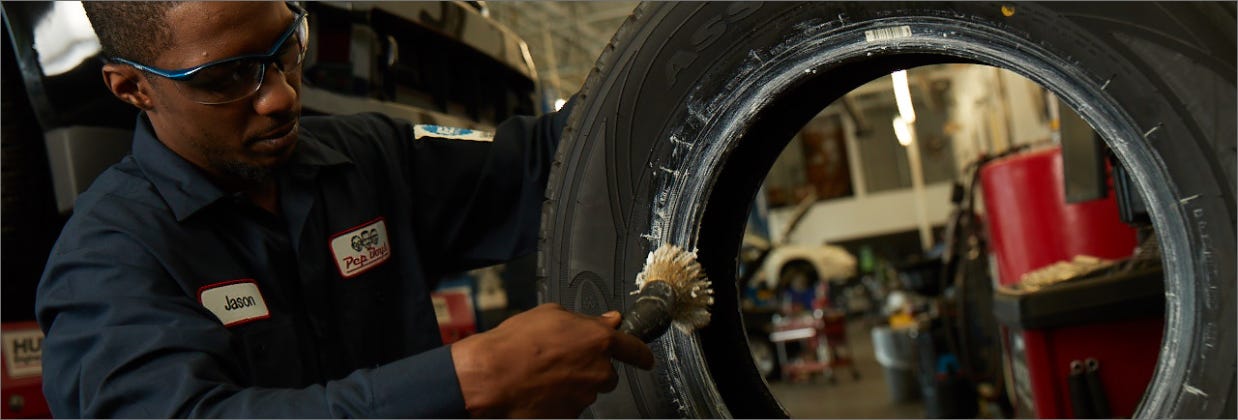Morris Tire: Your Trusted Regional Tire Professionals
The Link Between Tire Solution and Fuel Performance
Efficiency in gas consumption is a paramount issue for automobile proprietors looking for to optimize their driving experience. Among the different variables that affect fuel efficiency, tire solution attracts attention as an important element that usually goes neglected. The detailed relationship between tire maintenance and fuel economic climate is a testimony to the intricate operations of a lorry. By recognizing how tire treatment straight influences the performance of your automobile, you can unlock a world of opportunities that not only improve efficiency however also add to set you back financial savings over time.
Importance of Correct Tire Rising Cost Of Living
Proper tire inflation is an important consider optimizing gas effectiveness and ensuring ideal lorry efficiency. When tires are underinflated, it creates extra rolling resistance, creating the engine to function more challenging and melt more fuel to maintain the same speed. On the various other hand, overinflated tires can bring about a harsher adventure, unequal tire wear, and decreased traction. To locate the suggested tire stress for your vehicle, refer to the owner's guidebook or the sticker label located on the chauffeur's side door jamb.
Keeping the correct tire stress not just boosts fuel performance however also enhances driving safety. On a regular basis inspecting and changing tire pressure, particularly in the past long trips, is a straightforward yet reliable way to enhance your lorry's fuel economic situation and guarantee a smooth driving experience.
Effect of Tire Tread Depth
Preserving the recommended tire stress is crucial for optimum automobile performance and fuel efficiency; in a similar way, the walk depth of your tires plays a crucial function in making sure security and grip when traveling. Tire tread deepness straight influences the ability of your tires to grasp the roadway surface area, especially in wet or slippery problems. As tires wear down, their walk depth declines, influencing their ability to network water away and preserve proper contact with the roadway. The recommended minimum step deepness is generally 2/32 of an inch, but also for enhanced security and performance, numerous experts recommend changing tires prior to they reach this point. Correct tread deepness not only makes certain better handling and braking however likewise adds to fuel performance by minimizing moving resistance. Frequently checking your tire tread deepness and changing tires when necessary is a straightforward yet effective way to promote both safety and gas performance when driving.
Role of Wheel Positioning in Efficiency
Guaranteeing precise wheel placement is vital for maximizing car performance and making best use of fuel economic situation. Correct wheel placement entails readjusting the angles of the wheels to producer requirements, making certain that they are parallel to each various other and perpendicular to the ground. When wheels are misaligned, it can bring about unequal tire wear, enhanced moving resistance, and reduced fuel performance.

Furthermore, accurate wheel positioning can likewise improve managing and stability, lowering the amount site here of power required to steer the vehicle (discount tires morris il). By lessening unnecessary friction and drag, correct wheel placement plays an important function in enhancing general lorry effectiveness and fuel economic climate. Routine wheel alignment checks and adjustments are necessary for preserving optimum performance and maximizing fuel cost savings
Connection In Between Tire Upkeep and MPG
An important element of maximizing gas effectiveness in cars is the upkeep of tires and their straight influence on miles per gallon (MPG) Appropriate tire upkeep plays a crucial duty in taking full advantage of gas economic climate. On the other hand, overinflated tires view publisher site minimize the contact spot with the roadway, leading to unequal wear and lowered gas effectiveness.
Additionally, tire walk deepness likewise influences fuel efficiency. Damaged footsteps lower traction, especially in damp conditions, compeling the engine to apply even more power to preserve rate. This raised resistance lead to higher gas intake. By guaranteeing tires have appropriate walk depth, vehicle drivers can Recommended Reading boost both safety and gas economy.
In significance, proper tire upkeep, consisting of surveillance tire stress and tread depth, is straight linked to achieving optimal MPG. By incorporating routine tire examinations and maintenance into an automobile care regimen, motorists can not just prolong tire life yet likewise improve gas effectiveness, eventually conserving money and minimizing ecological influence.

Tips for Fuel-Efficient Tire Treatment
Provided the essential connection in between tire upkeep and gas effectiveness, carrying out effective strategies for enhancing tire care is crucial to enhancing overall automobile performance. Turning tires at suggested periods advertises even walk wear, enhancing gas effectiveness by making sure all tires add just as to automobile performance. By incorporating these fuel-efficient tire care suggestions right into a routine maintenance routine, motorists can maximize gas efficiency, minimize running expenses, and lengthen the life of their tires.
Conclusion
By on a regular basis keeping tires and complying with fuel-efficient tire care pointers, motorists can optimize their vehicle's performance and lower fuel intake. It is essential to prioritize tire upkeep to not only conserve cash on gas prices however also to advertise general vehicle effectiveness.